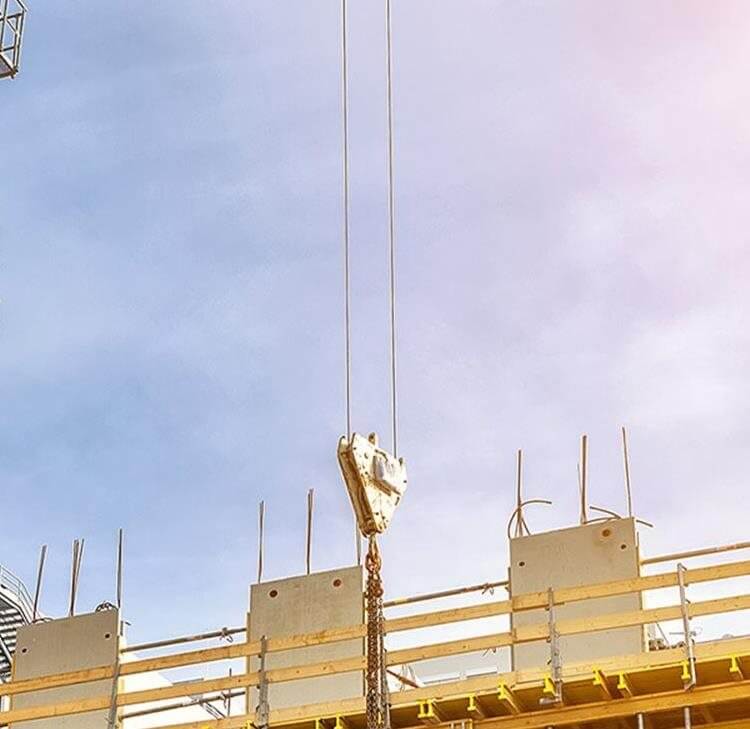
Disease law
Occupational ill-health and disease cost the UK £10.6bn in terms of financial cost (loss of production, increased health costs) and human cost (impact on quality of life of the employee and their families). Disease and illness claims, whether long-tail or short-tail, can have considerable impact on employers who may be faced with direct liability for gaps in insurance cover or are tasked with seeking out evidence, documents and witnesses for processes and factories that no longer exist.
Whether it’s dealing with a flood of low value but complex cases on causation and breach of duty, such as NIHL, through to complex historic cases such as asbestos-related diseases and workplace stress claims, our team will help you to make a decision on the right liability response at the pre-litigation stage and effectively manage the post-litigation process to a successful resolution.
Our industrial disease team works with insurers, TPAs, local authorities, public bodies, manufacturing and the leisure industry. The team provides practical advice, grounded in an in-depth knowledge of the issues, our clients and the sectors in which they operate.
We handle the entire range of disease claims at the pre- and post-litigation stages, from requests for personal data to attending inquests, involving various diseases, from NIHL to bladder cancer. We frequently advise on the strategic management of a portfolio of historic claims, where evidence, witnesses, documents or insurance history may not be readily discoverable or accessible.
Our specialist teams across our offices provide clear advice and apply a strategic approach to ensure that lessons are learned, reducing the risk of future claims and to improve defensibility of any claim which may follow.
What we do...
- Asbestos-related disease - causation, foreseeability of risk against standards of the day, evidence collation and retention.
- NIHL - effective retention of generic documents from noise surveys, to training and awareness documentation. We use an online NIHL tool which assists the expert handler to determine hearing thresholds/losses against established criteria.
- Hand arm vibration - handling multi-party claims where foreseeability of risk over the passage of time is of key importance against an understanding of changing HSE guidance, industry standards and legislation.
- Other complex case expertise – including work-related upper limb disorder, dermatitis and respiratory claims such as occupational asthma.
- Stress and bullying at work claims - managing witnesses who may be feeling vulnerable by keeping them fully appraised of the legal process. Providing grievance investigation training to HR professionals.
- Document collation and retention – including dealing with committee reports, archives, storage and documenting to establish an easily accessible reference for future use, ensuring efficient claims handling.
- Insurance and liabilities tracing – with particular reference to public bodies and local authorities where the responsibilities for services change to different organisations following government restructuring of boundaries.
- Training and updates - through our EL/PL and Claims Clubs throughout the year. We also produce a quarterly providing insight from specialist experts, barristers and our team on a range of cases and topics of relevance to the arena.
- Limitation and legacy claim handling.
Featured experience
Employers’ liability NIHL
Acting on behalf of two diverse manufacturing clients, concerning the management of employers’ liability NIHL. We worked closely with our clients to collate and preserve, locally where necessary, numerous historical noise surveys, noise policies, health and safety minutes, together with global and local awareness data. The preservation and ease of access to this bank of evidence has been central to maintaining robust defences, or filtering out at a very early stage the claims that need to be settled. This level of understanding of historical working practices and document retention, not only means that we are considered to be a ready source of information for any new insurer for the clients, but also ensures that we have removed repeat costs from the litigation process by the use of standardised and adaptable disclosure lists, readily accessible from our case management system.
Mesothelioma
A claim by a living mesothelioma claimant where a former police constable was negligently exposed to asbestos during the course of his employment. The case put to the police authority was that there had been exposure to significant levels of asbestos dust in the locker room and basement and that during the course of refurbishments he and his fellow officers were negligently exposed to significant levels of dust because of inadequate safety precautions. The claimant had been based at a number of stations over his period of employment. The claimant had used media to track down witnesses and secure damning supporting statements from fellow officers, which, if unchallenged, confirmed that exposure was likely to be held to be significant. The police authority were unable to offer rebuttal evidence and the documentary evidence was incomplete. With medical causation established, we changed strategy swiftly to explaining the risks to the police authority and ensuring that they had a clear understanding of the evidential difficulties with particular reference to the 'show cause' requirements. We limited outlay and costs by interrogation of the quantum evidence and effective Part 35 questions, drawing out concessions resulting in a satisfactory outcome and compromise.
Occupational asthma
We successfully defended an occupational asthma claim where the claimant, a leisure assistant with complex mental health issues, alleged she had been exposed to liquid sodium hypochlorite and that the client had failed to provide her with effective personal protective equipment (PPE) on two occasions. Her alleged symptoms were such that she ceased working and became housebound because of increased anxiety. We successfully persuaded the court that even if not defective, the PPE wouldn’t have made a difference. When faced with the claimant’s application for additional expert evidence from an occupational hygienist, this was successfully resisted whilst at the same time securing late permission for our own psychiatric evidence - an important milestone as at first directions the court refused to permit our client to seek their own expert report. The claimant received no payment after a long battle.
Personal injury
We defended a series of 25 personal injury claims from machine operatives at a factory, all alleging respiratory symptoms ranging from coughs to asthma and extrinsic allergic alveolitis as a result of exposure to metalworking fluids in the workplace. The combined value of these relatively modest claims was approximately £375,000. The civil claims management was complicated by the involvement of the HSE, who had already issued improvement notices, and also the alleged linked death of one employee, requiring attendance at the inquest to represent the insured. Specialist disease lawyers assessed the collated evidence to consider factual causation, medical causation and limitation issues. As the allegations spanned a number of years, we plotted the mutual liability issues against timelines of machine improvement, nature and extent of extraction systems and coolant contamination. A strategic decision was taken to instruct a single medical expert for all claimants, to advise on causation and the extent to which claimants’ symptoms were genuine and related to metalworking fluid exposure, and those which were not. This ensured consistency of approach, close working and control on disbursement spend. As the position on factual and medical causation crystalized, a great deal of headway was made by conducting a series of claims meetings over several days at the claimant solicitor’s premises. To drive home that the aim was to achieve settlement as a whole, we encouraged the attendance of employer representatives. This concerted approach achieved considerable total cost savings for those claims where an award was merited.
Key contacts

Matthew Harpin
Partner

Joanne Pruden
Partner

Bridget Tatham
Partner

Angela Williams
Legal Director
You may be interested in...
Legal Update
Whistleblowing protection and liability of innocent decision makers
Opinion
Whistleblowing protection: Disclosures to external investigators
Legal Update
Fires caused by lithium-ion batteries on the rise
Legal Update
National inquiry into child grooming: What does this mean for insurers?
On-Demand
Pupillage open evening
Legal Update
Top five takeaways for schools on the Employment Rights Bill
Legal Update
Martyn's Law: A closer look at the UK's new proposed anti-terror measures
Legal Update - Employment Rights Act
What does the Employment Rights Bill mean for employment practices liability insurance?
Press Release
King’s Speech 2024: Reaction from Browne Jacobson lawyers
Legal Update
Changes to the fixed recoverable costs regime
Legal Update
Welsh Government inks new regulations for Acupuncture, Body piercing, Electrolysis and Tattooing
Legal Update
Australian Court of Appeal considers welding exclusion
Legal Update
Recklessness not ‘accidental’ when it comes to trespass
Legal Update
Work experience placements – commendable: have them, and be alive to the risk
Opinion
Watering down workplace harassment proposals
Legal Update
Vicarious liability – don’t overlook the importance of close connection
Legal Update
Public liability register – is it (finally) on the way?
Legal Update
Official statistics demonstrate a new wave of age discrimination claims
Opinion
Directors fined for unsafe removal of asbestos
Two directors of a construction company were fined after failing to ensure the safe removal of asbestos from a plot of land. On 14 and 15 November 2021, Directors Anthony Sumner and Neil Brown, of Waterbarn Limited were involved in the uncontrolled removal of asbestos material from a plot of land in Grasscroft, Oldham.
Opinion
Is it hot in here, or is it just me?
Whilst the weather conditions are predicted to be cooling down this week, the Health and Safety Executive (HSE) is asking employers and businesses to consider adapting to recurrent warmer weather conditions for the safety and benefit of their staff. It asks employers to ensure that extreme heat becomes a firm part of longer term risk management. Climate change in any event is something all businesses will need to consider as the warmer weather becomes more frequent - extreme heat is something that will impact employers on a day to day basis.
Published Article
RAAC planks and its impact on local authorities
Recent reports of flat roofs constructed using RAAC planks collapsing without warning prompted the SCOSS alert.
Legal Update
Take care – but how much?
Opinion
Asbestos: Still the UK’s number one occupational killer
A ResPublica report highlighted that asbestos continues to be the UK’s number one occupational killer, with nurses and teachers 3 to 5 times more likely to develop mesothelioma than the general UK population. The House of Commons Work & Pensions Select Committee is investigating how the HSE manages the continued presence of asbestos in buildings.
Legal Update
Assessing the scope of employers liability – Chell v Tarmac
These were the opening remarks of Mr Justice Martin Spencer when handing down his Judgment in the recent case of Andrew Chell v Tarmac Cement and Lime Limited [2020] EWHC 2613, the latest in a series of appeals dealing with the scope of vicarious liability.
Opinion
Employers liability for practical jokes in the workplace
The extent of vicarious liability has been tested by the courts again and this time in relation to employees engaging in horseplay and practical jokes.
Legal Update
Noise-induced hearing loss claims – documentation and the expert engineer
Guest writer, Finch Consulting Senior Consultant Teli Chinelis applies his expertise in preparing engineering reports in relation to noise-induced hearing loss (NIHL) claims to explain information that is required from the claimant and information that is required and is advisable to be retained by employers, in order to ensure that claims can be fairly represented.
Legal Update
Kuoni referred to the CJEU by Supreme Court for clarification - possible impact on breach of contract, vicarious liability and assumption of responsibility claims for sexual abuse and assault
We were hoping to be able to give you some interesting insights following the judgment of X v Kuoni Travel Ltd but that will have to wait for another day.
Published Article
No such thing as an accident?
Sometimes it can feel as though there is no such thing as an accident anymore…
Legal Update
Freelance Solicitors not subject to Minimum Terms
As part of the SRA’s ‘Looking to the Future’ programme, from November 2019 solicitors who provide reserved legal activities who wish to practise on their own have the option to go freelance. Freelance solicitors will be a new class of solicitor.
Legal Update
Local authorities - recoveries from abusers' pensions - approach with caution
The damages claims social services authorities are facing arising out of alleged abuse by employees is not reducing.
Legal Update
Safeguarding - getting it right for youth clubs and groups
There is no doubt that clubs, community groups and organisations run principally by parents and volunteers for children and young people, particularly those that focus on skills, activities and team work offer immeasurable benefits for the people who take part.
Opinion
Landlord and tenant inspections - getting the evidence right
In Rogerson v Bolsover District Council (2019) the Court of Appeal found against a local authority landlord pursuant to the Defective Premises Act 1972 following a finding of an inadequate inspection regime.
Legal Update
W&I insurance and sell-side due diligence
The purpose of this note is to highlight the difficulties with vendor due diligence in the context of W&I insurance.



















